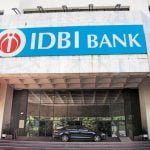
New Delhi: The Supreme Court said on Monday that it will decide whether the names of big loan defaulters could be made public.
Chief Justice T.S. Thakur, justices D.Y. Chandrachud and L. Nageswara Rao asked why names of defaulters of loans above Rs500 crore should not be made public.
In its response, the Reserve Bank of India (RBI) told the court that it is in the interest of banks that names of companies remain undisclosed. Besides, not all companies were wilful defaulters.
“You must work in the interest of the country, not the banks,” the court told RBI. “We are not interested whether these companies and individuals are wilful defaulters or not. We just want to know why there must be secrecy on these names.”
The court agreed to hear the centre and RBI on the issue on 28 October.
On 30 March, RBI had submitted a list of big loan defaulters in a sealed envelope and said that disclosing their names may have an adverse impact on businesses.
While the names of individual defaulters are made public by banks, the same rule does not apply to companies. On 29 September, RBI issued a notification to banks setting norms for publishing photographs of wilful defaulters in view of the ‘sensitivity’ of the issue.
Mint reported on 12 October that even after working on recovery with a single-minded focus, the banking system is yet to see a meaningful decline in the stock of non-performing assets worth Rs6 trillion.
According to RBI, annual recovery as a percentage of amount of cases filed under SARFAESI Act, DRT and Lok Adalats fell from 20% in FY14 to 9% in FY16. However, with the recent amendment to these laws, bankers are hopeful that recovery will pick up.
In April, the court had asked the centre to set up a committee to look into the issue of bad loans being written off by public sector banks.
The centre told the court that a committee has been set up and a report will be finalised within a week.
The court on 16 February made the central bank a party “in public interest” to a 2003 case related to bad loans advanced to a few companies by state-owned Housing and Urban Development Corp. Ltd.
The case was filed by the centre for Public Interest Litigation, an activist organization headed by lawyer Prashant Bhushan.
[“Source-Gadgets”]




